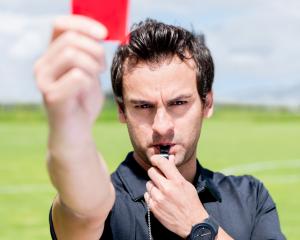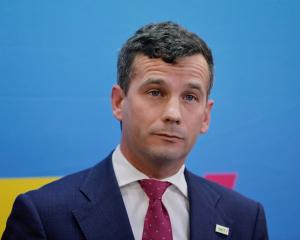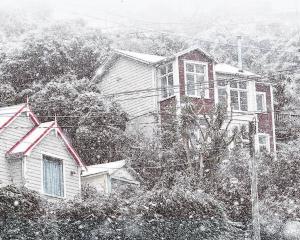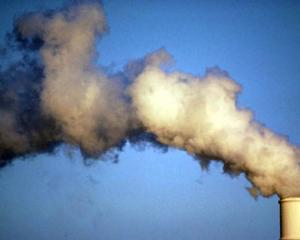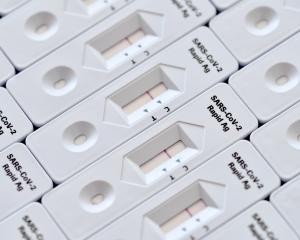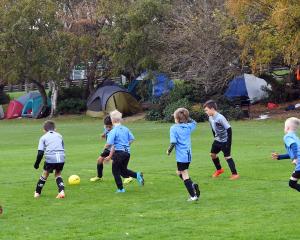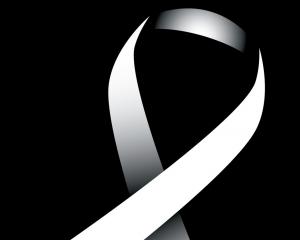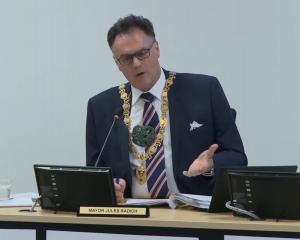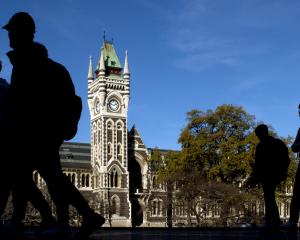The hearts of New Zealanders go out to our Pacific neighbours in Vanuatu in the wake of Cyclone Pam.
The category 5 cyclone, with wind gusts of more than 300kmh, has cut a swath of destruction through the islands. Locals say it is the worst cyclone to have hit the nation of just over a quarter of a million people. Aid workers are describing the situation as ''catastrophic''.
The Vanuatu Government has declared a state of emergency in Shefa province; the announcement of a national state of emergency is likely. By last night, eight deaths had been officially recorded. Eighty to 90% of homes and businesses in the capital of Port Vila have reportedly been devastated, most schools wrecked, and the main hospital reduced to one functioning ward. Trees and power lines have been downed, roads are washed out or blocked, and areas flooded, hampering access and relief efforts.
Most of the information available relates to Port Vila; the full extent of the damage, and the numbers of dead and injured, will become apparent as rescuers and aid workers make their way to the outlying islands. Last night there were also at least four aid workers, who hunkered down ahead of the storm, unaccounted for.
The immediate problems will be providing food, clean water and temporary shelter and preventing the spread of disease. Providing permanent housing, resurrecting businesses and rebuilding infrastructure will take many years and much money. Aid flights are thankfully starting to get through from both Australia and New Zealand. Both countries are among those to pledge millions of dollars in aid. The New Zealand Government says its initial commitment of $2.5 million is likely to be increased significantly.
The immediate response shows how vital our role and relationships in the Pacific are. There are many Pacific Islanders, including Vanuatuans, living and working here; many contribute to our culture, community and economy, many provide for their families at home. They will be feeling helpless and far from their loved ones.
New Zealand, too, was still on alert last night as the weakening cyclone, which could still pack destructive winds, made its way past northern and eastern parts of the North Island. Thankfully, it appears Auckland, Northland and the East Coast have escaped widespread catastrophic damage. It is an immense relief for those who still recall the death and devastation wrought in the North Island by Cyclone Bola in 1988.
We have undoubtedly been lucky, and must at the very least, do whatever we can to aid our Pacific neighbours who have lost so much.
And another thing
The fate of the New Zealand aid workers who remain unaccounted for in the wake of Cyclone Pam brings home the dangers for those working in a variety of humanitarian roles in natural disaster and conflict zones.
Those dangers have been further brought into focus for New Zealanders with the news a Gore nurse - believed to be Bronni McBain - has been at the centre of the country's first Ebola scare after becoming unwell. Mrs McBain recently returned from Sierra Leone, where she was caring for those who had contracted the viral haemorrhagic fever, which has a high fatality rate and has killed more than 10,000 people, including hundreds of West African and several international aid workers.
There will understandably be public safety fears here in the wake of the news, but authorities have issued assurances the proper precautions have been in place and followed. While the virus is highly contagious, and has an incubation period of up to 21 days, patients only become contagious once they start showing symptoms. Thus, if the isolation period is adhered to, there should be no risk to the public. Mrs McBain's first test cleared her of the deadly disease; the results of a second test are imminent and it is to be hoped and expected she will be given the all-clear soon.
In the meantime, the situations here, in Vanuatu, West Africa, and numerous other hotspots worldwide, should serve to remind us of the impressive work of aid workers who are prepared to risk their health and safety to help others in less fortunate situations. We should be immensely proud of - and grateful to - them.

